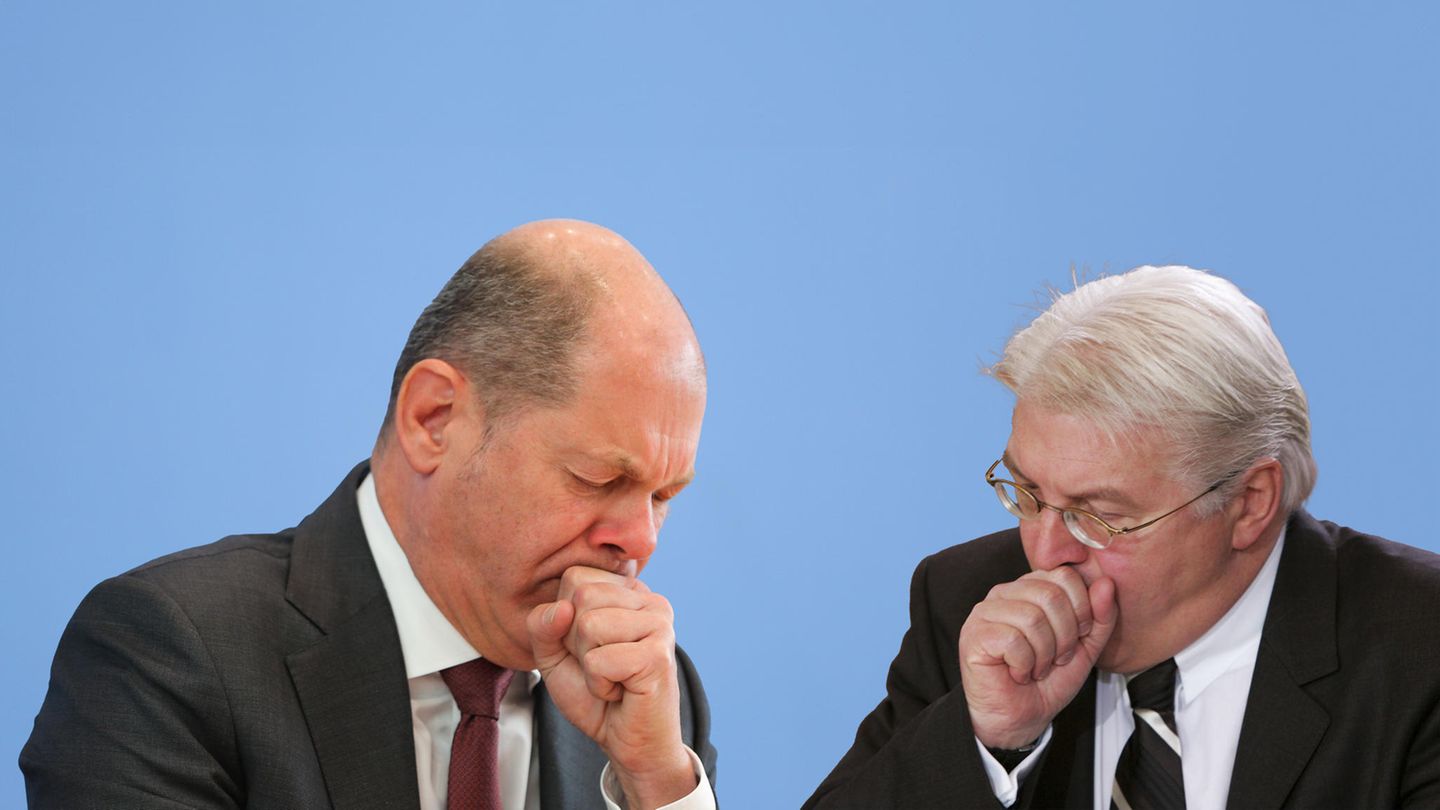column
Joe Biden’s health is being discussed publicly. In Germany, politicians’ illnesses are a private matter. Some people don’t want to show weakness.
In Olaf Scholz’s case, it might sound like this: The Chancellor appears to be above averagely fit for his age of 66. He is in robust health and is very rarely ill. When he is not wearing a blindfold, he regularly exercises, and occasionally it would do him good to go to bed earlier. Scholz is able to carry out his duties without any physical or mental limitations.
Joe Biden and his personal physician
Such a medical certificate is a fiction in Germany. The Chancellor is not obliged to give an account of his state of health. The same applies to the US President, but it has become a tradition for the man in the White House to regularly consult his personal physician and for the results to be published. Joe Biden’s last general check-up officially dates back to the end of February. At the time, it was said that, despite a few minor ailments, the President was fully fit to hold office. As we know, this finding has met with increasing skepticism and opposition over the months.
In German politics, health is a private matter. When Angela Merkel was repeatedly struck by shaking attacks in the middle of her last term in office, she initially dismissed the question of the cause by saying that she had not drunk enough. The second time, she said that it was precisely the fear of a repeat of an attack that had caused the second attack. The Chancellor left the question of fitness for office to her own assessment: one can assume that she is aware of the responsibility of her office “and therefore acts accordingly – also with regard to my health”. This should mean: If I can’t do it anymore, I’ll tell you.
Secrecy in the political system
Anyone who saw Merkel with iron discipline when she was shaking in front of the cameras would have known that the Chancellor did not want to show a moment of weakness. It was in those seconds that she was probably reminded of her thoughts from the time before she ran for chancellor again in 2017: Back then, she had not hesitated out of fear of defeat or because of the strains of the election day, but because she was aware of the strain she would have to face in the four years that followed.
Showing weakness is usually a political taboo. Helmut Kohl concealed a serious prostate disease before the 1989 Bremen CDU party conference, where he had to expect an internal party coup attempt, because he feared that it would be interpreted as an excuse if he had stayed away. In 2002, Heide Simonis secretly went to hospital for cancer surgery. Just two days later, she hid the drip bottle under a white shawl and went to a public ceremony. In 2004, Defense Minister Peter Struck even kept to himself from Chancellor Gerhard Schröder that he had suffered a stroke.
Such secrecy says a lot about the political system, the subjective perception of merciless competition and the personal fear of losing importance – it has little to do with the public’s reaction. When Mecklenburg-Western Pomerania’s Prime Minister Manuela Schwesig made her breast cancer public, she was respected for her openness and understanding for prioritizing treatment over political business. And when her colleague from Rhineland-Palatinate, Malu Dreyer, recently justified her resignation by saying that she lacked the strength, she was respected. With her insight into her own weakness and the conclusion she drew from it, Dreyer demonstrated one thing above all: strength.
All episodes of the column “Fried – View from Berlin” can be found here.
Source: Stern
I have been working in the news industry for over 6 years, first as a reporter and now as an editor. I have covered politics extensively, and my work has appeared in major newspapers and online news outlets around the world. In addition to my writing, I also contribute regularly to 24 Hours World.




